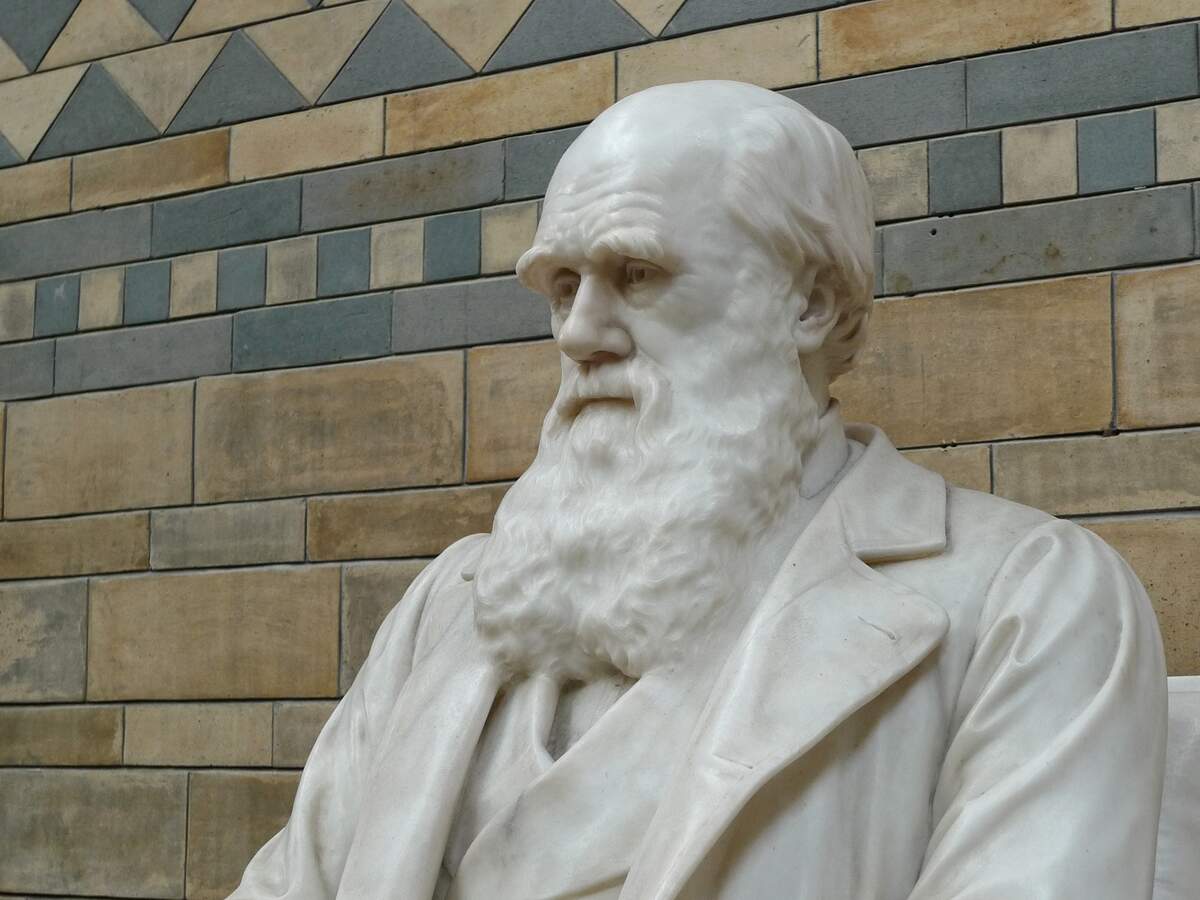

International Darwin Day
Also known as
Darwin Day
Observed
annually on February 12th
Dates
Founded by
Amanda Chesworth
Dr. Robert Stephens
Prof. Massimo Pigliucci
Tags
Famous People & Celebrities
Science & Technology
Hashtags
Sources
International Darwin Day, commonly known simply as Darwin Day, is an international celebration of science and humanity which aims "to inspire people throughout the globe to reflect and act on the principles of intellectual bravery, perpetual curiosity, scientific thinking, and hunger for truth as embodied in Charles Darwin." The day is centered around "celebration, activism, and international cooperation for the advancement of science, education, and human well-being." It commemorates Darwin's birthday, highlights his contributions to science—particularly his theory of evolution by natural selection—and promotes science around the world.
Tributes have been paid to Charles Darwin since the publication of his most well-known book, On the Origin of Species, in 1859, and especially since his passing at the age of 73 on April 19, 1882, by scientists, freethinkers, and scholars, in the name of celebrating science and humanity. Following his death, gatherings began taking place at his home, Down House, in Downe, on the outskirts of London.
In 1909, on the 100th anniversary of his birth and 50th anniversary year of the publication of On the Origin of Species, large celebrations were held in Cambridge, New York City, and New Zealand. In Cambridge, England, 400 scientists and dignitaries from 167 countries met to honor Darwin's contributions. In New York, celebrations were held at the New York Academy of Sciences and the American Museum of Natural History. The Royal Society of New Zealand held a large celebration for Darwin on June 2.
In 1959, events were held around the world as part of the Darwin Centennial Celebration, marking the 150th anniversary of his birth and the 100th anniversary of the publication of On the Origin of Species. The largest event was held between November 24 and 28 at the University of Chicago. Large celebrations were also held around the world in 2009.
Darwin enthusiasts Dr. Robert Stephens, Prof. Massimo Pigliucci, and Amanda Chesworth were behind the creation of the official International Darwin Day. In 2000, Darwin Day Program was incorporated, and in 2002 it was reincorporated as Darwin Day Celebration, a 501(c)(3) nonprofit educational corporation that focuses on public education about science and its celebration around the globe. The American Humanist Association assists in the celebration of International Darwin Day. Events are held around the world.
Many types of events are held, such as lectures, symposia, debates, workshops, concerts, and poetry readings. Dinner parties with recipes for primordial soup are held, as are "Phylum Feasts," meals whereas many different phyla as possible are eaten. Re-enactments of the Scopes Trial and of the debate between Thomas Henry Huxley and Bishop Samuel Wilberforce at the 1860 Oxford evolution debate take place. Many educators have special lessons for their students on or around the date. Various campuses mark the day. For example, Salem State University has held Darwin Festival since 1980, the Southern University has held an event since 2006, and the University of Georgia has held an event since 2009.
The holiday has also been proposed or declared by politicians. In 2011, Pete Stark, U.S. Representative from California, introduced a resolution to designate February 12, 2011, as Darwin Day. Similarly, in 2013, Rush D. Holt, U.S. Representative from New Jersey, introduced a resolution to designate February 12, 2013, as Darwin Day. Jim Himes, U.S. Representative from Connecticut, has since introduced a resolution to designate the day. In 2015, Delaware became the first state to formally mark the day, when Governor Jack Markell proclaimed the day Charles Darwin Day.
Charles Robert Darwin was born on Feb 12, 1809, in Shrewsbury, England. He came from a wealthy family that had a history working in science: his father was a medical doctor and his grandfather was a renowned botanist. He was the second youngest of six children, and his mother passed away when he was eight. He enrolled at the University of Edinburgh at 16 and at Christ's College in Cambridge two years later. His interest was in natural history, and he graduated with a bachelor of arts degree in 1831.
Darwin received the naturalist position aboard the HMS Beagle, and took part in a five-year survey trip around the world on the ship beginning on December 27, 1831. He found the Pacific Islands, Galapagos Archipelago, and South America particularly interesting. While observing biology, zoology, and geology, and collecting birds, plants, and fossils, Darwin began to formulate theories. Following his return to England in 1836, he wrote his findings in Journal and Remarks, which is also known as Journal of Researches. This book later became known as The Voyage of the Beagle.
Following the trip, he began to develop a theory about the origin of living beings. It contrasted with the views of other naturalists, who believed species largely remained the same over time, having either existed at the beginning of the world or having been created at some point in time. His theory of evolution said that species survived through a process called "natural selection." It said that those that adapted or evolved to their changing habitats were able to thrive and reproduce, while those that couldn't evolve or reproduce died off. Darwin's belief that species evolved from common ancestors stemmed from the similarities he observed around the world among species of birds, plants, and fossils while on his voyage.
Darwin publicly introduced his theory in 1858, at a meeting of the Linnean Society. On November 24, 1859, he published his signature work, On the Origin of Species, which detailed his theory. His theory and the process of natural selection became known as Darwinism. It is still controversial, as it clashes with Creationism, the religious belief that God created all nature. Social Darwinism emerged from Darwinism in the late 1800s. It adapted Darwin's theory of evolution to explain social and economic issues. Darwin died at his home, Down House, on April 19, 1882.
How to Observe International Darwin Day
Here are some ideas on how to celebrate International Darwin Day:
- Explore official International Darwin Day events and add your own event to the list.
- Check to see if other events are taking place in your community, such as lectures, symposia, debates, or workshops.
- Help to make International Darwin Day an officially recognized holiday.
- See if any events are being held at a nearby college campus.
- Get involved with the American Humanist Association.
- Read On the Origin of Species or The Voyage of the Beagle.
- Read Darwin Day Collection One: the Single Best Idea, Ever, a book written by Amanda Chesworth, one of the founders of International Darwin Day.
- Read a biography about Charles Darwin.
- Visit Down House, Darwin's family home.
- Visit Darwin's grave at Westminster Abbey.





















